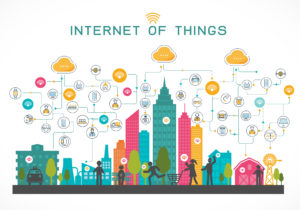Communication skills rank high on the list of career skills necessary for success in the quickly-growing Internet of Things (IoT) field, according to a new survey from Northeastern University-Silicon Valley.
The university surveyed more than 500 members of the Institute of Electrical and Electronics Engineers (IEEE), and the responses yielded surprising findings about the challenges facing the IoT field.
Nearly 60 percent (58.8 percent) of survey respondents said those working in the IoT field need communications skills, including an ability to explain ideas or concepts clearly and effectively.
That compares to just 19.5 percent of respondents who cited deep industry knowledge as the most relevant skill, and 14 percent who cited collaboration.
(Next page: Biggest challenges and the main obstacles in the industry)
According to 37.8 percent of surveyed engineers, data aggregation and data analysis ranked as the biggest IoT challenges. Another 25.7 percent of respondents cited current inadequate skill levels of workers as the industry’s main obstacle. In fact, the need for a well-trained workforce far exceeded the need to create a comprehensive IoT strategy, which just 6.4 percent of respondents named as their top IoT challenge.
Likewise, 53.7 percent of respondents said they aim to acquire skills in systems design and integration, followed by 49.3 percent who want to build skills in data communications. That compares to just 4.7 percent of respondents who desire new skills in data science.
Survey respondents said defense/military (54.75 percent), security/access control (48.6 percent), and healthcare (41.53 percent) are the three industries most likely to be early adopters.
The top three hot areas for IoT-focused positions are systems design (49.81 percent), network and protocols (41.6 percent), and data analytics (40.3 percent).
To build a lasting career in IoT, the emphasis on softer skills such as communication and collaboration support a growing need for real-world human abilities vs. technical strengths in computer science, according to PK Agarwal, CEO and Regional Dean of Northeastern University-Silicon Valley.
“The IEEE survey results clearly demonstrate that introducing change and developing new products requires a change agent with strong communication and collaboration skills,” Agarwal said. “As a result, more people from diverse career backgrounds should consider retraining for successful roles in growth sectors such as IoT, artificial intelligence and machine learning.”
- Students view AI with optimism, but women are at risk of being left behind - July 7, 2025
- 6 key cybersecurity hiring trends - July 3, 2025
- Digital innovation and human connection are reshaping higher ed - June 30, 2025
